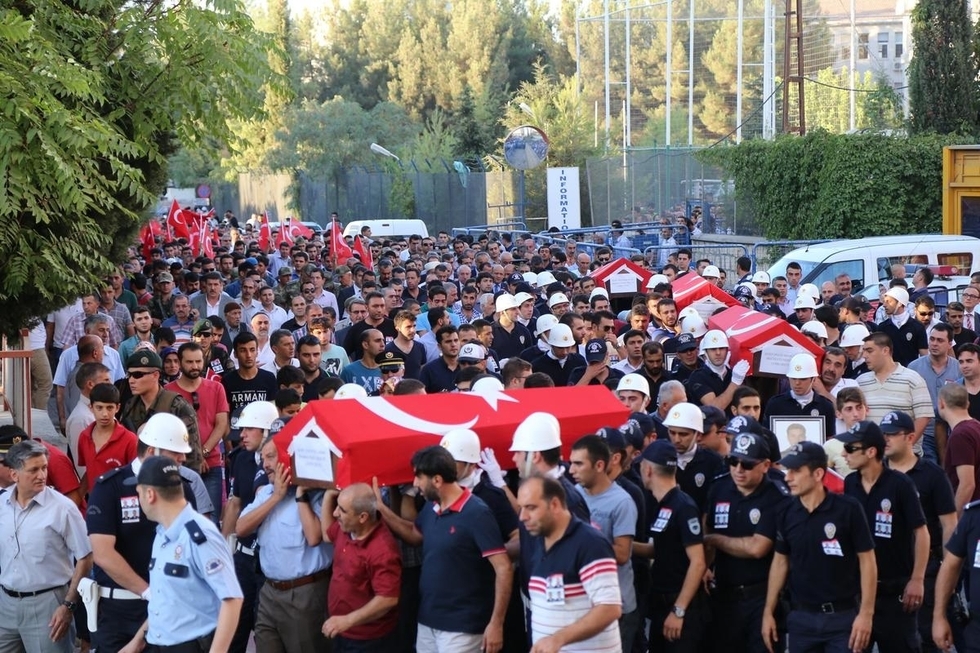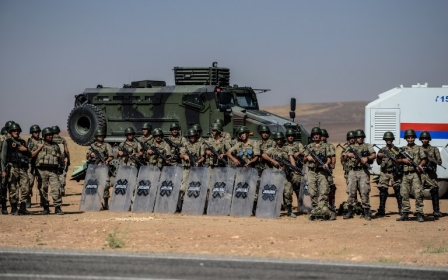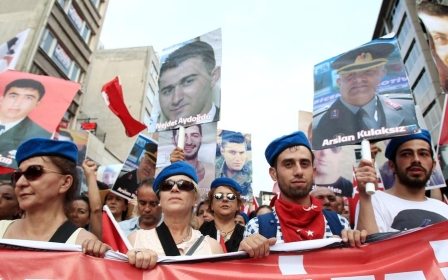Turkish ground forces cross into northern Iraq to pursue PKK

Turkish special forces have crossed into northern Iraq in a ground incursion to pursue Kurdistan Workers' Party (PKK) fighters after a deadly attack on the army, the Dogan news agency reported on Tuesday.
According to the Turkish news agency, Turkish special forces, supported by warplanes, crossed into northern Iraq in "hot pursuit" of two 20-strong groups of PKK fighters. Turkey confirmed the reports.
"Turkish security forces crossed the Iraqi border as part of the hot pursuit of PKK terrorists who were involved in the most recent attacks," a Turkish government source told AFP. "This is a short-term measure intended to prevent the terrorists' escape."
The incursion, the first into Iraqi territory since 2008, comes on the back of an escalation in hostilities between the PKK and the Turkish security forces.
At least 14 police officers were killed on Tuesday in an attack by the PKK on a minibus taking them to the Dilucu border post with neighbouring Azerbaijan, the state-run Anatolia news agency reported. In a seperate incident later on Tuesday, a police officer was killed and his daughter injured when suspected PKK assailants fired on his car in the eastern province of Tunceli. Four policemen were also injured when a rocket-propelled grenade struck a Turkish police armoured vehicle in the southeastern town of Cizre, officials told Reuters. Turkish TV channel TRT Haber, however, reported that the men had been killed.
Late on Sunday, Turkish media said that 16 soldiers were also killed by the outlawed group in a twin roadside bomb attack in Daglica in the southeastern region of Hakkari. The PKK, known for sometimes exaggerating the death tolls of its attacks, said 31 Turkish soldiers had been killed.
Their deaths prompted Prime Minister Ahmet Davutoglu to vow to "wipe out" PKK militants from the mountains of eastern Turkey.
Until now, Ankara had largely responded by bombing PKK position in Turkey and Iraq and cracking down on PKK supporters in Turkey.
In response to the Daglica attack, Turkish warplanes launched a massive air operation early on Tuesday in northern Iraq, killing as many as 40 PKK fighters, Turkish Anatolia agency said.
More than 50 Turkish jets were involved in the six hours of raids, killing "35 to 40 terrorists according to preliminary findings", it added.
Turkish President Recep Tayyip Erdogan on Tuesday vowed not to abandon the country to "terrorists" after the deadly attacks.
"We did not and will not abandon the nation's future to three or five terrorists," Erdogan said in a speech in Ankara.
"In this country, the burial mound for martyrs has never remained empty. It appears it will never remain empty," said Erdogan.
But he promised that "with god's permission, Turkey, which has overcome plenty of crises, will get over the plague of terror".
The EU has also condemned the escalation.
"As we have said many times in the past, we strongly condemn terrorist attacks by the PKK and call for urgent and unconditional ceasefire on all sides in order to return to the negotiating table," an EU foreign affairs spokesperson said.
Meanwhile - the PKK on Tuesday released 20 Turkish citizens - including customs officials, kidnapped in August by the militants in the east of Turkey and then moved to Iraq, officials said.
The PKK handed the 20 over to a delegation consisting of human rights activists, Iraqi Kurdistan officials and members of Turkey's pro-Kurdish People's Democratic Party (HDP) who travelled to Iraq, security sources in eastern Turkey told AFP.
The customs officers are expected to arrive at Turkey's Habur border crossing with Iraq later Tuesday.
The 20, held in PKK camps in Iraqi Kurdistan since their capture, had been released early Tuesday by the PKK in Dohuk province in northern Iraq, security sources told AFP.
New MEE newsletter: Jerusalem Dispatch
Sign up to get the latest insights and analysis on Israel-Palestine, alongside Turkey Unpacked and other MEE newsletters
Middle East Eye delivers independent and unrivalled coverage and analysis of the Middle East, North Africa and beyond. To learn more about republishing this content and the associated fees, please fill out this form. More about MEE can be found here.




